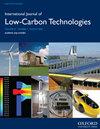纳米材料在废食用油生物柴油发动机减排中的应用
IF 2.3
4区 工程技术
Q3 ENERGY & FUELS
引用次数: 2
摘要
主要使用化石燃料的柴油发动机会排放有害气体。沼气和生物柴油等生物燃料是潜在的替代品。然而,许多生物燃料的供热价值很低,而且供应不一致。纳米颗粒(NPs)的使用为增强燃烧和减少排放提供了一个有吸引力的替代方案。本研究旨在通过添加氧化钛(TiO2) NPs改善废食用油生物柴油(WCOB)生产的生物柴油的排放性能。试验在不同负载水平的柴油发动机上进行,使用B1(100%柴油),B2(80%柴油+ 20% WCOB)和B3(80%柴油+ 20% WCOB,添加200 mg/l TiO2 NPs)的燃料混合物。与柴油模式相比,B2混合燃料的一氧化碳排放量平均减少了8.92%,而基于TiO2 np的B3混合燃料的一氧化碳排放量平均减少了25%。与柴油模式相比,B2混合燃料和基于tio2的B3混合燃料的平均碳氢化合物排放量分别减少了5.6%和16.6%。B3共混物与B2共混物相比,氮氧化物排放量平均减少3.75%。总之,在发动机燃料中添加NPs是减少排放的可行解决方案。本文章由计算机程序翻译,如有差异,请以英文原文为准。
Application of nanomaterials for emission reduction from diesel engines powered with waste cooking oil biodiesel
Diesel engines that predominantly run on fossil-based diesel fuel emit harmful emissions. Biofuels such as biogas and biodiesel are potential alternatives. However, many biofuels have poor heating values and supply inconsistencies. The use of nanoparticles (NPs) offers an appealing alternative for enhancing the combustion and emission reduction. This study aimed to improve the emission performance of biodiesel produced from waste cooking oil biodiesel (WCOB) by adding titanium oxide (TiO2) NPs. Tests were conducted in the diesel-powered engine at varying load levels using fuel mixtures of B1 (100% diesel), B2 (80% diesel + 20% WCOB) and B3 (80% diesel + 20% WCOB with the addition of 200 mg/l TiO2 NPs). In comparison with the diesel mode, the average reduction in carbon monoxide emissions was 8.92% for the B2 blend and 25% for the TiO2 NP-based B3 blend. For the B2 blend and TiO2-based B3 blend, the mean reduction in hydrocarbon emissions was 5.6 and 16.6%, respectively, when compared with diesel mode. When comparing B3 blends with B2 blends, the average reduction in nitrogen oxide emissions was 3.75%. In conclusion, adding NPs to engine fuel is a viable solution for reducing emissions.
求助全文
通过发布文献求助,成功后即可免费获取论文全文。
去求助
来源期刊

International Journal of Low-carbon Technologies
Engineering-Architecture
CiteScore
4.30
自引率
4.30%
发文量
106
审稿时长
27 weeks
期刊介绍:
The International Journal of Low-Carbon Technologies is a quarterly publication concerned with the challenge of climate change and its effects on the built environment and sustainability. The Journal publishes original, quality research papers on issues of climate change, sustainable development and the built environment related to architecture, building services engineering, civil engineering, building engineering, urban design and other disciplines. It features in-depth articles, technical notes, review papers, book reviews and special issues devoted to international conferences. The journal encourages submissions related to interdisciplinary research in the built environment. The journal is available in paper and electronic formats. All articles are peer-reviewed by leading experts in the field.
 求助内容:
求助内容: 应助结果提醒方式:
应助结果提醒方式:


